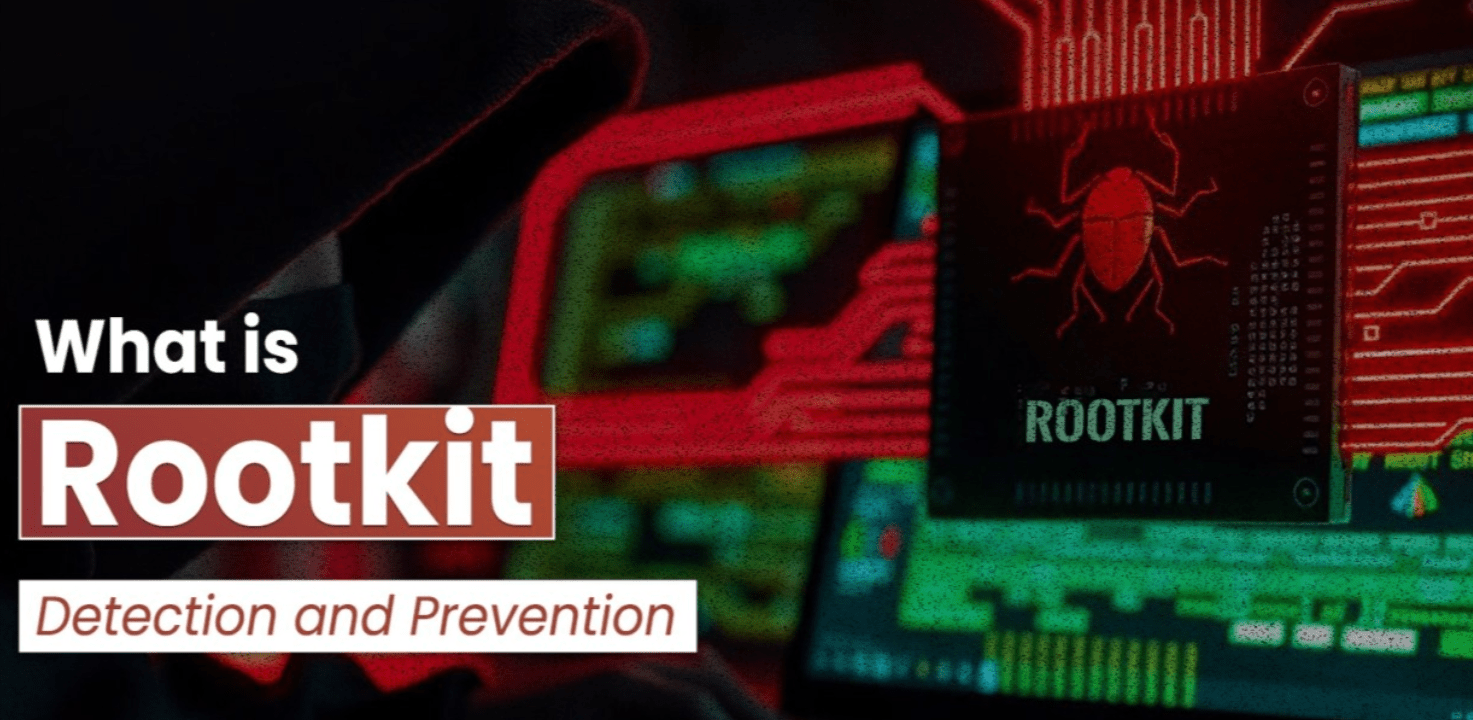What Are Rootkits and How Do They Threaten Your Security?

Rootkits are malicious programs intended for illegitimate access into your computer or network without anyone knowing. The term originates from "root," which refers to the topmost access on Unix-like systems, and "kit," which means the tools used to control it.
Generally, rootkits bury themselves very deep in the system files, making them nearly impossible to detect. They can sometimes be used by cybercriminals to hide other types of malware, (such as viruses or Trojans), by letting them into the vulnerability caused by unsuccessful detection by security software, and here is what most rootkits do:
Getting In: When a hacker sneaks into your computer without permission, they often set up a rootkit. They can break in by taking advantage of weak spots in software tricking someone with phishing, or if someone downloads dodgy software or files off the web.
Grabbing More Power: After getting on your system, the rootkit aims to snatch up more control. It tries to give the hacker super-user or "root" access. With this power-up, they can mess with your system, put in more nasty stuff, or do stuff they shouldn't, and you'd have no clue.
Rootkits are slyer than all of the other applications combined-hackers in the software world are ninjas. There are the important ingredients for proper baking of an operating system-such as its core files or memory-it kneads all of those-sneak away and have fun without being caught by your virus scanner. The best hide-and-seek game: rootkit takes the older participation.
Once it has taken root and settled in, a rootkit is virtually the equivalent of handing over keys to your digital fortress. The hackers can take over all of your things and keep a secret door ajar for popping back to visit at any time they want. No, not cool.
Rootkit Varieties
You've got different types of sneaky rootkits based on their hideouts and action modes. The main rootkit categories are:
User-mode Rootkits:
They mess with software running in the operating system's user space. Their goal is to tweak system apps so that bad stuff and files stay invisible to both the user and anti-virus programs. Sure, they're somewhat simpler to spot than other kinds, but kicking them out is tricky.
Kernel-mode Rootkits:
These sneaky programs dig into the OS's core hanging out in the kernel. That’s like the boss of the system's most vital parts. Spotting them is tough 'cause they fiddle with the core parts to stay under the radar. Talk about risky—they get their hands on everything in the system.
Bootkits:
Bootkits interfere with the boot process of the systems, attaching themselves either with the Master Boot Record or with UEFI, which stands for Unified Extensible Firmware Interface. This makes them run before the operating system even wakes up. As a result, this is the way the rootkit starts up, and this is exactly how it becomes a big pain to find or get rid of.
Firmware Rootkits:
These insidious kind of rootkits go after the firmware of devices like router hard drives and printers. They are a major pain when it comes to getting op, as they detour normal OS rules and require specialized equipment to see them and evict.
Hypervisor Rootkits: Hypervisor rootkits mess with virtual machines by operating below the operating system. This sneaky move lets bad guys take charge of both the host and the guest operating systems. Spotting these hypervisor rootkits is a tough gig since they're doing their thing where the operating system doesn't look.
Rootkits and the Risks to Your Safety
Rootkits bring big security risks okay? So, once they're lurking in your system, brace yourself for a bunch of bad stuff:
Grabbing Your Secrets:
Keyloggers get plugged in by rootkits and they jot down each button you press. Hackers grab stuff like your secret codes, the numbers on your bank card, and your private chats. These snatched details can go for stealing your identity grabbing your cash, or to mess with you even more.
Taking the Wheel of Your Tech:
Get a rootkit in your system, and bam, baddies have the reins to your tech from anywhere. They sneak a peek at your files, keep an eye on what you're up to, or even use your gadget to hit other systems making your own tech a zombie in an army of zombie machines.
Camouflaging Nasty Software:
Another bad thing that rootkits do is, they can collude with viruses, Trojans, or worms - for this reason, generally all are now okay to have an easy time inflicting more damage on their own--without detection by normal security programs. Extra nasties joined by these rootkits can cause the trouble of a worm for your computer.
Causing Chaos in System Operations: Rootkits have the potential to ruin your computer by damaging critical files or corrupting the important functions that make it perform efficiently. Modern technology gets slow, crashes, or acts strangely. If you do not catch it at an early stage, the rootkit will make so much mess in the system that it becomes irretrievable, meaning you are bound to lose your data or start everything all over again.
Using Infected Devices to Start More Trouble: A device infected by a virus may get busy on offense against other devices causing ripples of troubles. Cybercriminals may commandeer these compromised systems to fling malicious software all over the place, play havoc with other people s gadgets, or put in motion a humongous DDoS smackdown.
Spotting a Rootkit?
Spotting a rootkit ranks as pretty tough given its sneaky nature. Still, you might spot some clues that suggest a rootkit has messed with your system:
Your Computer Acting Up: When your PC starts freezing, crashing, or feeling sluggish, a rootkit might be messing with it.
Weird Network Stuff: Rootkits might start shady data moves or chat with other computers without you knowing. Keep an eye on your network to spot this sneaky stuff.
Vanishing Files or Apps: Seeing your files or applications go poof or just can't touch them? That could scream 'rootkit!'
Antivirus Gone AWOL: When your virus buster gets switched off without you doing anything, or your firewall nopes out, a rootkit could be trying to stay under the radar.
Guarding Against Rootkits
Rootkits can be tough to spot and get rid of, but you've got a few moves to safeguard your system.
Get Rid of Rootkits with Antivirus Programs:
Go for trusted antivirus programs with skills to spot rootkits. You can find tools just for catching and getting rid of rootkits too.
Update Your Apps and Systems Regularly:
Keep your operating system, software, and the firmware fresh and up-to-date. Rootkits often use old software's weak spots, so fixing those holes can lower your chances of getting hit.
Set Up a Firewall:
Firewalls are good at stopping sneaky rootkits from making bad network connections. It's important to have your firewall turned on and set up right.
Steer Clear of Sketchy Links and Downloads:
Avoid any download and click on anything that looks suspicious; it might be a trap. Be careful clicking on links and downloading files from unknown sources. But doing your best to establish whether websites and emails are genuine is paramount so that rootkits will not slip in through shady emails or downloads.
Save your data: Back up your data every now and then, as much as possible. If your computer is infected by a rootkit, you would want to get all your files back clean and free, so as not to lose what is most important.
Regular System Scans: Make scanning computers a habit using updated security software; this would be a great way to catch anything malicious sneaking. Set that antivirus software to check everything at a certain interval; do this at regular intervals.


